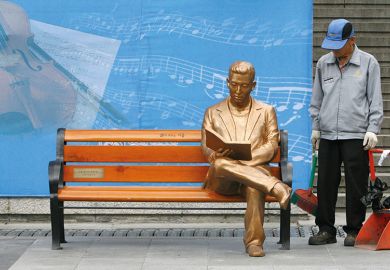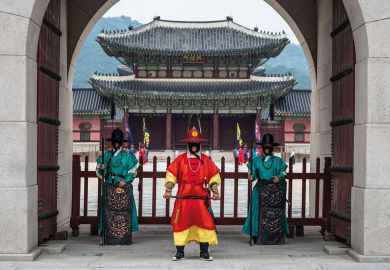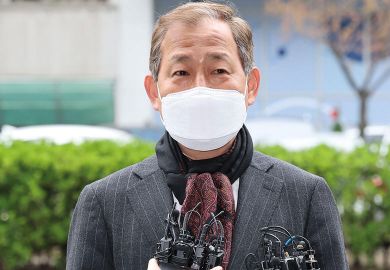A plan by South Korea’s government to support its semiconductor industry by allowing thousands more students into universities to study related fields has received mixed reviews from academics, some of whom say it is too little, too late.
Last month, the country’s education ministry set a goal of training an additional 150,000 people with semiconductor expertise over the next 10 years. Under the plan, each region will have its own research centre for semiconductor studies, establishing a national network of centres. The ministry will also lift current student quotas at Seoul metropolitan universities in semiconductor-related departments, national media reported.
The change comes as US-China tensions increase incentives for creating a homegrown semiconductor industry, with countries trying to curtail overreliance on foreign production of the components – which are critical in making computer chips.
But some academics were sceptical that Seoul’s efforts would shift the dial.
“Lifting the quota will make some difference but it’s not enough to incentivise [more people] to go in to the semiconductor field,” said Namgi Park, a professor and former president of the Gwangju National University of Education.
Increasing support for “related areas” such as physics, chemistry, computer science and engineering “does not mean everyone will go on to develop semiconductors”, he told Times Higher Education.
The plan also does not prevent semiconductor talent from leaving for other countries – with higher salaries elsewhere a driving force, he said.
Another researcher, who asked to remain anonymous, said the “sudden” change in policy by the South Korean government comes “too late” in the game.
“It reminds me of an old Korean proverb: ‘You only mend the broken fence after you lost your precious cow,’” he said.
Since the 2010s, the Korean semiconductor industry has warned about a lack of manpower – only to be “ignored” by previous governments, which believed the companies should be responsible for training their own workforce, according to the scholar.
He also wondered whether universities could find enough qualified teachers to accommodate a growing number of students.
“Perhaps universities can hire qualified retired professors or those who retired from either Samsung or Hynix. But the best engineers are not always the best teachers,” he said.
Other academics took a more positive view.
Terri Kim, a visiting professor at Yonsei University and honorary professor of comparative higher education at the University of East London, said that the plan to kick-start the industry was ambitious, but not impossible.
She noted previous successful government-led efforts to boost science and technology – evidence that top-down policies to boost technology have worked in the past.
“I think the strong government leadership with a clear vision and accompanying strategies has worked well,” she said, adding, “Korea has been an exemplar of the so-called Developmental State…which ‘educates’ the people and initiates a dynamic private sector.”
Still, she cautioned against institutions doubling down in related fields just because of the national push.
“Obviously, not all universities would be able to, or need to, specialise in semiconductor education programmes. I think it would be better if individual universities identify their strengths and invest more in those areas,” she said.
Register to continue
Why register?
- Registration is free and only takes a moment
- Once registered, you can read 3 articles a month
- Sign up for our newsletter
Subscribe
Or subscribe for unlimited access to:
- Unlimited access to news, views, insights & reviews
- Digital editions
- Digital access to THE’s university and college rankings analysis
Already registered or a current subscriber?







